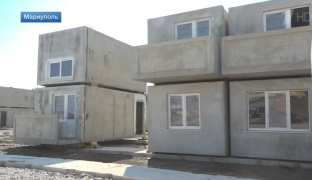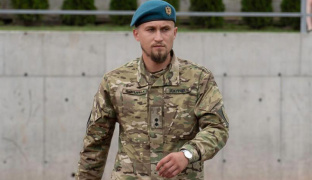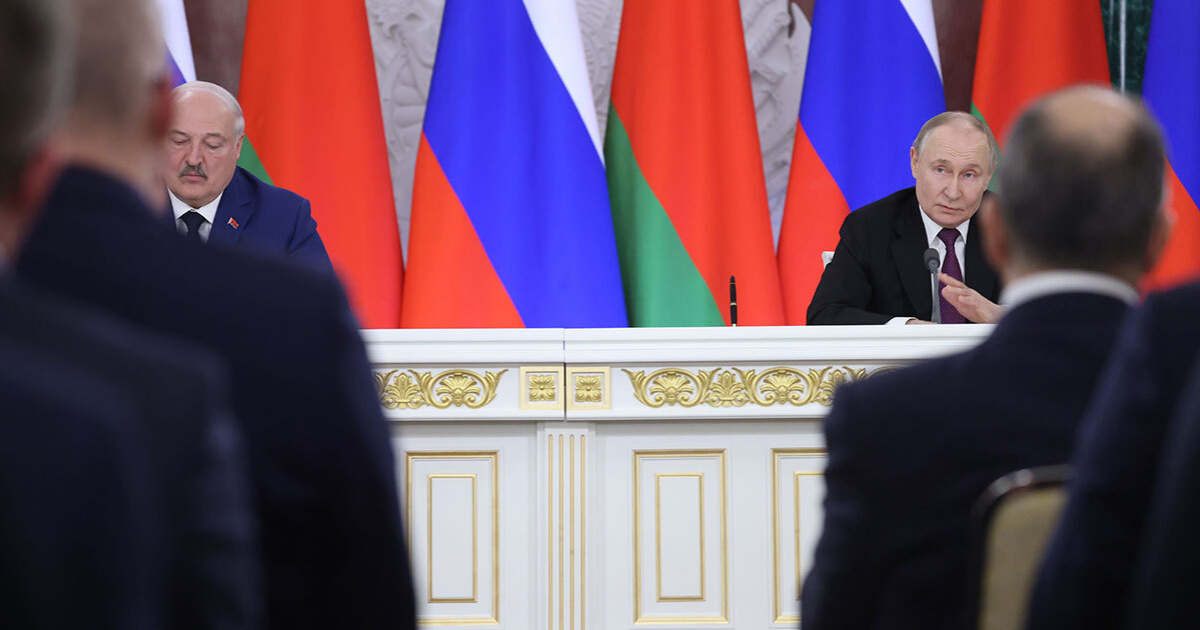The consequences of quarantine in the uncontrolled areas of the Donetsk and Luhansk oblasts turned out to be not as severe for the economy as in Ukraine, the EU or the USA.
For one simple reason: there is no longer an economy as such in CADLO. This is indicated by the latest data coming from the "DNR"-"LNR".
However, the available resources are still enough for the lavish lifestyle of the local elite. Therefore, no one is going to turn off the "banquet".
A survival experiment in the conditions of lack of money and ruin continues for the remaining small population. And this has a very distant relation to quarantine.
Metal is not relevant…
The Vneshtorgservis (VTS) management company announced the shutdown of the Yenakiieve Metallurgical Plant from March 25 a week later. Officially – for scheduled overhaul.
In fact – due to falling demand for steel in Europe and other countries where products of the Yenakiieve Metallurgical Plant are illegally shipped.
Since both construction and industrial enterprises, including car factories, completely stopped there in the spring because of quarantine. These are the main industries where steel products are used.
VTS announced an overhaul of blast furnace No.3, converter No.1 and an oxygen unit. Although the oil change in the compressor and the refilling of sieve in the oxygen unit is unlikely to belong to the capital category.
Nevertheless, rolling mill 550 was also stopped, which allows for the production of long products, as well as blast furnace No.5 and converter No.2, that is, the enterprise stopped completely.
The company of Serhiy Kurchenko reported the resumption of blast furnace No.5 on May 8. From this it follows that blast furnace No.3 continues to stand idle, supposedly, under repair. Together with one of the converters.
However, the export of even those small volumes of cast iron and steel feed that the Yenakiieve Metallurgical Plant can produce became at risk in May due to a strike by the railway workers in occupied Ilovaisk and Debaltseve.
The stoppage of cargo movement forced "head of the DNR" Denis Pushilin, who arrived in Ilovaisk on May 29 and came down on "head" of the Donetsk Railway Vladimir Kabatsiya on-camera, to move.
At the same time, the "head of the republic" scolded the local trade unions for their poor work: allegedly, they stand up for the rights of workers poorly. He also reported that the railroad workers should not expect any increase in salaries, since even the current salary cannot be paid on time. "As long as there are wage arrears, we will not talk about any increase", - D.Pushilin stated.
Despite the fact that his appeal to V.Kabatsiya - "you should not sleep securely while you have wage arrears" - looked rather stupid, and the order to the "DNR prosecutor's office" to find out the reasons for delays in payments was theatrical, nevertheless, certain progress occurred after the arrival of the "chief" in Ilovaisk.
Railway workers were paid 25% of their salary for April and May. At the same time, the working week in June remained three-day. So, we are talking about pennyworth payments that do not even provide a living wage.
Therefore, the Donetsk railway workers have no enthusiasm.
Metallurgical enterprises have a similar problem: the Yenakiieve Metallurgical Plant, the Donetsk Metallurgical Plant, the Makiivka Metallurgical Plant and the Alchevsk Metallurgical Plant.
All these enterprises are under VTS, which has managed to accumulate incredible baggage of hatred from metallurgists and miners for 3 years of "external management".
From the reports of workers on social networks, it follows that salaries for February and March, as well as for April, were still not given at the Donetsk Metallurgical Plant (branch of VTS No.1) at the end of April.
A similar situation was at the Makiivka Metallurgical Plant, which completely stopped in March following the Yenakiieve Metallurgical Plant.
At the Yenakiieve Metallurgical Plant, anonymous users called on their colleagues to protest because of the months-long salary delays.
At the same time, metallurgists asked not to believe the propaganda hype in separatist media that the situation at the plants of Vneshtorgservis had normalized.
Well, it came to the strike at the Alchevsk Metallurgical Plant in a month: when the workers did not receive in June the money for May, March and April.
It is worth noting that the events at the CADLO metallurgical enterprises are in no way connected with quarantine and coronavirus – the problem rests largely on the personages of fugitive Kharkiv oligarch S.Kurchenko and his "managers".
This is indicated at least by the fact that the collective's protests took place at the Alchevsk Metallurgical Plant in February, before quarantine was announced in the EU, Ukraine, and Russia.
The reason for the protests was the same. Railway workshop of the Alchevsk Metallurgical Plant went on strike and was completely stopped on February 13 due to the months-long wage arrears.
The railroad workers were supported by the workers of blast-furnace shop. Then an appeal to "head of the LNR" Leonid Pasechnik, in which its authors promised a rally in Alchevsk and a hiking trip to Luhansk, appeared on the network.
It was not that Pasechnik was frightened of the protests near his residence, but they still had an effect: employees of the Alchevsk Metallurgical Plant were fully paid their salary for January on February 29.
The end of December 2019 – when no one even heard of coronavirus, was no better.
Only 40% of the salary for November was paid out at the Donetsk and Yenakiieve metallurgical plant before the New Year. It was even worse at the Alchevsk Metallurgical Plant. Only salary for October was paid out there.
By parts: 50%, 30% and 20%. As of December 31, no money was paid for the work in November-December. In a word, there is clearly no need to blame coronavirus and quarantine.
Coal too…
However, you should not blame all the problems of the Donetsk and Luhansk industry on the fugitive Kharkiv oligarch. This is indicated by the situation in the Luhansk coal industry.
It was decided there at the end of April of the current year to refuse the services of Vneshtorgservis and create their own "republican" association Vostokugol based on the grabbed mines.
a strike at the Komsomolska mine in Antratsyt began already on June 5: the workers did not receive money for March, April and May.
According to the reports in social networks and Russian media, 150 people remained underground, having refused to rise in protest. Later, their number was reduced to 128.
According to the data from social networks, workers of the Nikanor-Nova and Bilorichenska mines joined the action.
Moreover, the previous strike at Nikanor-Nova was on the same occasion a month earlier, in early May.
So, it is not just about VTS, the departure of which from the Luhansk mines has changed nothing. It is about a deliberate policy aimed at destroying the industry of Donbass in general and the coal industry in particular.
But who conducts it and what for? The answer to this question is easy to read when reviewing social networks, which is full of announcements of trips from Donetsk and Luhansk to Moscow, Tula, Taganrog, Krasnodar and Rostov.
The only thing is that the Donbass residents are not waited for highly paid and skilled work in "fraternal" Russia.
However, someone still needs to work in these places, and local people do not agree for that kind of money. But for Donetsk and Luhansk metallurgists and miners who receive $115-$215 in the "republics", even $360-500 in the Russian Federation with regular payments is a great option.
Of course, "brothers from the Donbass" are more preferable for Russians as cheap and low-paid workers than those Tajiks or Uzbeks who have filled this niche in the Russian Federation long ago.
So, it is necessary to somehow make the "brothers" themselves go into labor slavery. And how to do it? That is right, to deprive them of the opportunity to earn more or less normally at home.
Therefore, the Kremlin turns a blind eye to the escapades of S.Kurchenko and local bigwigs at the Donbass factories and mines.
Well, coronavirus is a great reason to isolate entire cities where protests are taking place and not to let even Russian journalists go there. A kind of freebie for Pasechniks and Co. to the already existing for 6 years curfew…
Vitaliy Krymov, OstroV




